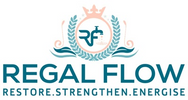
Reverse Osmosis vs Hydrogen Water: Which Should You Choose?
Should you strip your water back or supercharge it with antioxidants? Reverse osmosis zaps the nasties, while hydrogen water adds a healthy boost. Think of our In-Depth Insights into Reverse Osmosis Systems and Applications as your RO encyclopedia. But hang out here for a simplified look at whether purity or performance is the right priority for your tap
What is Reverse Osmosis?
Imagine turning your kitchen tap into a mini water purification plant. That’s what reverse osmosis (RO) does without the hard hat and overalls. It’s become a go-to system in British homes where people want to take control of their water quality. Whether you're fed up with chalky tea or just not keen on the idea of invisible chemicals in your glass, RO has your back. So, how does it work?
Process and Benefits
At its core, reverse osmosis is a high-tech filtering method. Water is pushed through a super-fine membrane that catches all the things you don’t want to drink, like chlorine, lead, pesticides, and limescale. The setup usually involves:
-
A pre-filter to grab sediment and chlorine
-
A membrane that filters out up to 99% of dissolved nasties
-
A post-filter to polish the taste
The result? Crystal-clear, clean-tasting water. Perfect for brewing tea, filling water bottles, or making baby formula with confidence. Plus, it’s especially helpful if you live in hard water areas like the Thames Valley.
Limitations
Of course, it’s not all rainbows and sparkling water. Reverse osmosis also removes good minerals, like magnesium and calcium. That can leave your water tasting a bit lifeless—flat, even. And then there’s the water waste. For every glass of pure water, several glasses might go down the drain. Add in the need for under-sink space and regular filter changes, and it’s clear RO takes a little commitment. But many Brits see it as a fair trade for peace of mind.
What is Hydrogen Water?
If reverse osmosis is about taking stuff out of water, hydrogen water is about putting something in; specifically, hydrogen gas. It’s gained quite a following among health-conscious folk and gym regulars. Some swear by it for energy boosts and recovery after workouts. Others just love the idea of sipping something with a bit of a wellness kick.
It sounds futuristic, but it’s surprisingly easy to make.
Production Methods
You don’t need a science lab to create hydrogen water. Most people in the UK use one of three methods:
-
A small electrolysis machine that infuses hydrogen into your water
-
Portable tablets you drop into a glass or bottle
-
Pre-packaged hydrogen drinks (though these can be pricey and lose potency over time)
It’s easy to fit into your daily routine and us just like adding a Berocca or brewing a cuppa.
Claimed Health Benefits
This is where hydrogen water gets its sparkle, quite literally and figuratively.
The buzz is all about its antioxidant effects. Some early studies suggest it could help:
-
Reduce oxidative stress
-
Improve hydration at the cellular level
-
Support faster muscle recovery
-
Potentially slow signs of ageing
Sounds impressive, right? But here’s the rub, while some science backs it up, we are still waiting on large-scale studies. It’s promising, but not proven. Still, for people who love testing out the latest wellness trends, hydrogen water has a definite appeal.
Comparative Insights
Now comes the big question: if you’re picking between reverse osmosis and hydrogen water, which one wins? Let’s break it down with what we do know.
Scientific Evidence Supporting Each
Reverse osmosis has been around for decades. It’s supported by countless studies and recommended by health agencies. If clean, safe water is your number one priority, RO ticks every box. Hydrogen water? It’s newer on the scene. The research is growing, and the early signs are interesting but it’s not conclusive. So if you're the kind of person who prefers facts over fads, RO has the stronger track record.
Health Implications
Here’s where it gets personal. If your tap water smells like bleach or you live near farmland with heavy pesticide use, RO is the obvious choice. It’s practical and proven. But if you’re focused on performance, hydration, or reducing inflammation, hydrogen water might be the one to watch. Many households actually combine the two: first purify with RO, then enrich with hydrogen. It’s like a tag team for your tap; one cleans, the other boosts.
Conclusion: Making an Informed Decision on Water Consumption
So, what should you choose?
Short answer:
-
Pick reverse osmosis for thorough purification and peace of mind.
-
Go with hydrogen water if you’re aiming for wellness perks and enhanced hydration.
Or, if you’re feeling savvy, use both! Start by testing your tap water (services like MyTapWater.co.uk are great for this). Think about your lifestyle, health goals, and how much time and money you are happy to invest. There’s no one-size-fits-all when it comes to water. Just your size, your needs, and your glass. And whether you're purifying or powering up, the right choice can make every sip a bit more satisfying.
More Reverse Osmosis info we think you'll love
How Many Stages Does Reverse Osmosis Have?
Reverse Osmosis and Osmosis Difference
Reverse Osmosis and Ultrafiltration
Reverse Osmosis and UV Water Filter
Reverse Osmosis vs Ultrafiltration
Reverse Osmosis vs Deionized Water
Reverse Osmosis vs Gravity Filter
Can Reverse Osmosis Remove Microplastics?
Reverse Osmosis Water Treatment Plant


Leave a comment